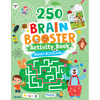Introduction: Making Homework Time Stress-Free
Homework can be a daily struggle for many families, often turning into a battle of wills. But with the right strategies, parents can help their children develop good study habits and complete their assignments with less resistance. By creating a structured routine, offering the right support, and using positive reinforcement, homework can become a productive and even enjoyable part of the day. Here are some effective and easy-to-implement strategies to help tackle homework challenges and keep kids on track.
Tip 1: Set Up a Dedicated Homework Space
-
Designate a quiet, clutter-free workspace where your child can focus.
-
Ensure the area is well-lit, stocked with school supplies, and free from distractions like TV or loud noises.
-
Having a consistent space helps establish a routine and signals that it’s time for focused work.
Tip 2: Establish a Homework Routine
-
Set a specific time for homework every day, whether it’s right after school or after a short break.
-
Keeping a consistent schedule helps kids develop a sense of responsibility and time management.
-
Allow short breaks between assignments to prevent burnout and improve focus.
Tip 3: Break Tasks into Manageable Steps
-
Large assignments can feel overwhelming, so break them down into smaller, more achievable tasks.
-
Encourage kids to start with easier tasks before moving on to more challenging ones.
-
Use checklists or planners to track progress and keep them motivated.
Tip 4: Remove Distractions
-
Turn off electronic devices (unless needed for research) and limit background noise.
-
If possible, use website blockers to prevent distractions from social media or online games.
-
Encourage focus by setting a timer for short, dedicated study sessions.
Tip 5: Encourage Independence but Offer Support
-
Allow kids to attempt their homework independently before stepping in to help.
-
Guide them through problem-solving instead of giving direct answers.
-
Encourage critical thinking by asking open-ended questions like, “What do you think the next step should be?”
Tip 6: Use Positive Reinforcement
-
Praise effort and progress, not just results.
-
Set up a simple reward system like stickers, extra playtime, or a fun activity after finishing homework.
-
Acknowledge their hard work to build confidence and motivation.
Tip 7: Make Homework Interactive and Fun
-
Use educational apps, videos, or hands-on activities to make learning more engaging.
-
Turn study time into a game with flashcards, quizzes, or friendly competitions.
-
Relate homework topics to real-life experiences to make learning more meaningful.
Tip 8: Encourage Breaks and Movement
-
Encourage kids to take short breaks between assignments to avoid frustration.
-
Stretching, walking, or a quick fun activity can re-energize them.
-
The Pomodoro Technique (25 minutes of work followed by a 5-minute break) can be an effective strategy.
Tip 9: Communicate with Teachers
-
Stay in touch with teachers to understand expectations and get clarification on assignments.
-
If a child struggles consistently with a subject, don’t hesitate to ask for additional resources or guidance.
-
A teacher can provide insights into a child’s learning style and suggest effective strategies.
Tip 10: Be Patient and Stay Positive
-
Homework frustration is normal—stay calm and offer encouragement.
-
Create an open space where kids feel comfortable asking for help.
-
Remind them that mistakes are part of learning and celebrate their efforts, no matter how small.
Conclusion: Turning Homework into a Positive Habit
Homework doesn’t have to be a stressful experience for kids or parents. By creating a structured routine, providing the right support, and using fun and engaging methods, homework time can become a smoother and more productive experience. Every child learns differently, so experimenting with these strategies can help find what works best. With encouragement, patience, and consistency, kids will build the confidence and skills needed to succeed academically!
📌 Tip: Encourage kids to set small goals for each homework session and celebrate their achievements—this builds motivation and makes learning enjoyable!








